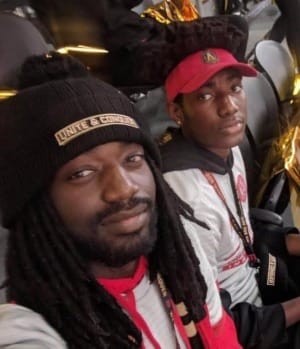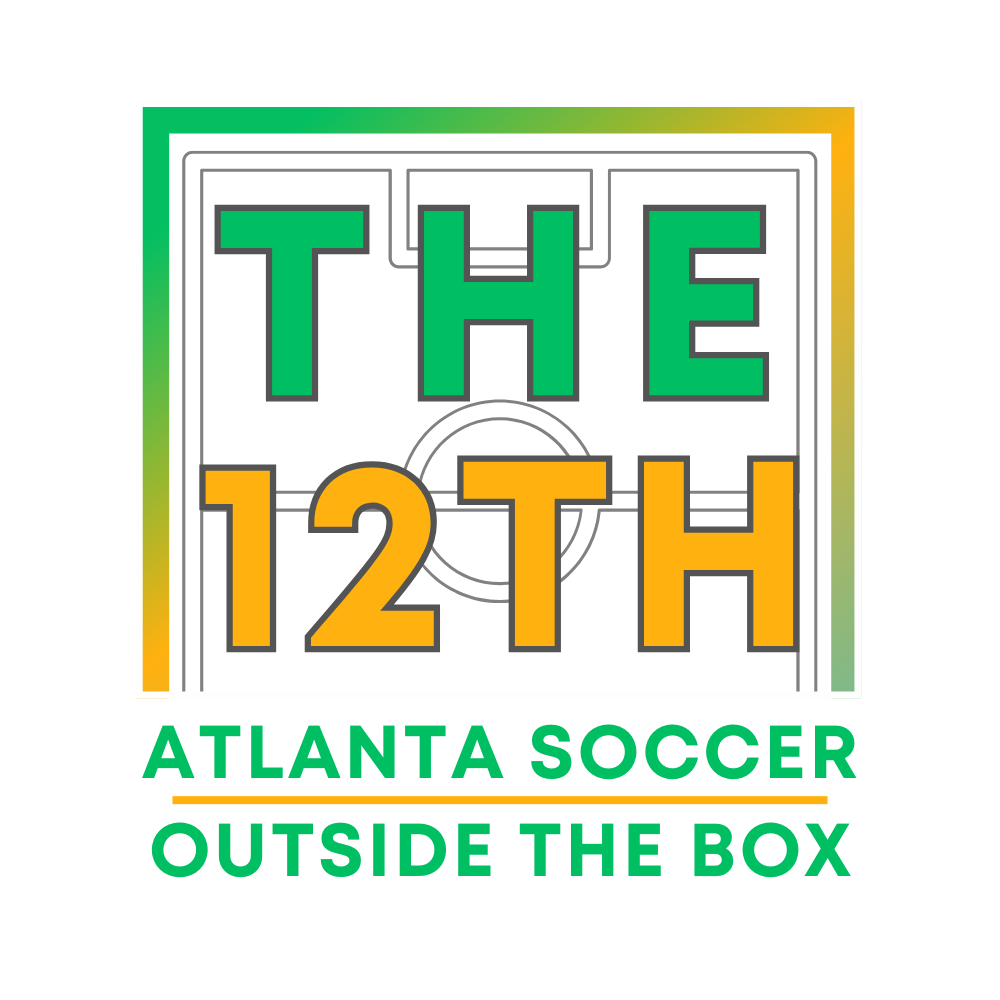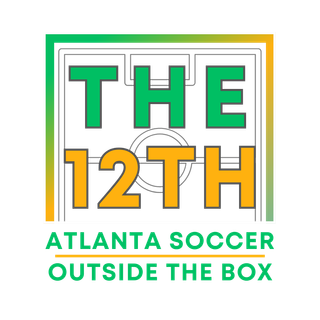
What does the history of Atlanta fandom tell us about what’s next?
On the eve of the final match of Atlanta United’s worst-ever season, club owner Arthur Blank published a letter to season ticket holders bluntly acknowledging the state of the team. Twenty-four hours later, on October 18th, United would be fighting for a tie that allowed them to barely avoid receiving the “wooden spoon”–the unofficial prize for the worst squad in Major League Soccer (MLS).
“Our recent results on the pitch have not reflected who we are, or who we strive to be, and are not acceptable,” Blank wrote in a letter to fans posted the next day on Instagram. The phrase marked Blank’s most significant and public acknowledgement of a 2025 gone awry.
Indeed, after salvaging the 1-1 tie against DC United to avoid last place by the thinnest of margins, the 2025 season will go down as Atlanta United’s worst ever. This year’s squad has won one less match than the pandemic-shortened 2020 season. On Sunday morning, October 19th, the club parted ways with Head Coach Ronny Diela. On November 6th, the club turned back the clock and rehired Geraldo “Tata” Martino, who has existing relationships with Chief Soccer Officer Chris Henderson, to try and turn the flailing franchise around.
In Major League Soccer, unlike most professional football leagues around the world, this dismal showing does not bring with it the risk of “relegation” - where the worst one to four teams drop to a “lower” or less competitive league and are replaced by the same number of high achievers “promoted” from the lower league. Anywhere else in the world, Atlanta would be on their way out of the top tier of professional football. In the United States, they simply miss the playoffs.
The only reprieve for United supporters this season has been that four of the team’s five wins have come at Mercedes Benz Stadium, and attendance has averaged 44,277 – best in the league by more than 13,000. In what was surely a more hopeful time only nine months ago, the announced crowd for the first game of the season was 65,000-plus – third-largest on the planet that week.
With around 36,000 season ticket holders, and a long waitlist, those numbers come from the truly faithful. But the in-person experience may be more telling. The stadium has never been emptier according to fans The 12th has spoken with who have been there since the beginning. After five seasons in decline, with this one being the worst, there’s reason to ask, how long will fans stick around for mediocre results?
An Explosive Start
When United came onto the scene in 2017, it was only the second time a major city in the South was tested to see if it would support the world’s most popular game. Orlando, Florida had received an MLS Expansion Club in 2015 – but the region’s prominent Latin American population provided a familiarity with the sport that made that experience different from Atlanta’s. Still, United’s owner Arthur M. Blank, who also owns the city’s NFL franchise, the Atlanta Falcons, wasn’t starting from scratch. He liquidated over a third of his personal fortune to build the most expensive stadium in the country ahead of the club’s inaugural season. Fan outreach was seen as a key to success–and people responded, by buying season tickets early.
Metro Atlanta had seen professional soccer teams before that had contracted big names and flirted with greatness. The Atlanta Silverbacks averaged 4,500 attendees a match until they folded the year before United started and, as my colleague Timothy Pratt wrote in 2014, the club wasn’t afraid to make risky moves to reach success. The Silverbacks were preceded by the Atlanta Ruckus. The Atlanta Beat, playing out of Kennesaw State’s stadium where United’s “2” team now plays, made an attempt to establish the women’s game in 2010-2011. Even further back, the city's first professional soccer franchise, the Chiefs, won the inaugural North American Soccer League championship in 1968, before falling into mediocrity.
This wasn’t the city’s first rodeo, but it was their big shot, and fans knew it.
The Atlanta metro area’s youth soccer programs had also seen an explosion in popularity, driven by the large number of immigrants making the region their home. The 2018 squad featured five players with roots in Georgia, and this connection was important to at least some fans. Colin Robinson, a “founding member” from Buford – someone who purchased season tickets by the end of the inaugural season – mentioned George Bello as an example.

“George Bello and my little brothers used to play against each other all the time,” he said. “People were absolutely going to watch them play, because they've seen them grow up as kids.” Bello is now playing in Austria.
The club delivered. As Jennifer Shu, another founding member from Decatur, remembers, “games were electrifying” in the first few seasons. In 2018, Atlanta became the first MLS team to average more than 50,000 fans a game on its way to hoisting the MLS Cup. That was 10,000 more than the city’s storied professional baseball franchise, the Braves. It was 30,000 more than the Atlanta Hawks. Several Atlanta United games drew more than 72,000, filling Mercedes Benz Stadium to capacity. In 2019, the team finished second in the MLS Eastern Conference and won the Lamar Hunt U.S. Open Cup, beating Minnesota United 2-1. It seemed like nothing could stop them.

The Last Five Years
Since then, things haven’t been the same. COVID-19 cut the 2020 season short, and the team has slowly declined. In 2021 and 2023, they still managed to qualify for the MLS playoffs, but lost early both times. For new fans of MLS, it should be noted that fully half the teams in the entire league qualify for the playoffs, making it a pretty generous affair in the world of professional sports. Coaching changes followed each new disappointment, and the roster churn slowly eroded the high-pressing team loaded with South American talent that had moved masses of Atlantans to the stands.
Through the first half of the 2024 season, the script remained largely unaltered. The club fired both the Head Coach and Technical Director in a bid for change. For the second time, Assistant Head Coach Rob Valentino was called up to serve as Interim Head Coach while a talent search began.
The team somehow managed to sneak into the MLS Playoffs again, and after winning a “win and you’re in” match against CF Montreal and former Atlanta legend Josef Martínez on penalties, United pulled off what many commentators described as the greatest upset in MLS history, defeating Lionel Messi’s record-setting Inter Miami squad in Miami.
Despite falling to Orlando in the next round, the victory breathed life into a fanbase desperate for some oxygen. But it wasn’t enough to earn Valentino the head coaching gig. The franchise turned to Ronny Deila, who had won the MLS Cup with NYC FC, and Valentino soon resigned. But toward the end of the worst season in franchise history, fans who had so recently tasted hope began calling for Deila’s removal – and now, they’ve gotten what they wanted. Valentino, for his part, is currently coaching the USMNT U-19 squad and, by all accounts, loving life.
The Atlanta Sports Curse
“To all my Atlanta fans, if your heart truly hurts.
It’s time we band together and break this Atlanta Sports Curse.
Loose my hawks, sports devil! Loose my dirty birds!
I’m tired of all the losing. The embarrassment is quite absurd.
You sent Michael Vick to prison, then gave us 28-3.
Traded Dominique for Danny Manning, are you freaking kidding me?I mean, the Braves won a couple of times, but the Hawks and Falcons ain’t won a thing.
We even had to see the stanky, dirty, filthy Saints win a ring.
Why must we feel this anguish? Why must we feel this hurt?
My partna said it’s cause the city shut down Freaknik and Arthur Blank closed dem old folks’ church.
So if you love the City of Atlanta, and you rep this Georgia dirt:
It’s time we all band together and break this Atlanta Sport Curse.”
With these words, Tre Montgomery III a.k.a. ‘Playboy Tre’ challenged Atlantans to break the so-called Atlanta sports curse, on the Atlanta Sports Show ‘The Water Boyz.” For decades, many of the city’s professional teams have developed a reputation as folding under pressure. Atlanta teams are notorious for being just good enough to make the playoffs, but never good enough to win. For building enormous leads and falling apart late in games. For finding ways to snatch defeat from the jaws of victory.
A review of the history of our teams shows where these attitudes come from. Atlanta’s men’s basketball team, the Hawks, have not won an NBA championship since moving to the city in 1968. So when the 1986 Hawks rolled into the playoffs and promptly defeated the Detroit Pistons in four games – with Dominique Wilkins putting up 38 points in the clincher – the city was ecstatic. But Boston’s Larry Bird ended that season the next round.
Every season after that, like clockwork, Wilkins would be a League All Star, and the Hawks would lose in an early round of the playoffs. Finally, in 1994, in the midst of another high caliber season, the Hawks inexplicably traded Wilkins and a first round draft pick for a younger Danny Manning who ended up playing only 26 games for Atlanta before leaving the team after the season. It would be 2015 before the Hawks finally made it to their first Conference Championship Series. In that series, they lost every game.
Our women’s basketball team, the Atlanta Dream, are perennial playoff contenders. Since their founding in 2008, the Dream have qualified for the postseason eleven times. They’ve reached the finals three times, which is three more times than the Hawks, but like their counterparts, the Dream have never won a championship. Despite a playoff loss this fall, they have an air of inevitability about them. With real star power in the forms of Rhyne Howard, Allisha Gray, and Brittney Griner, the Dream have taken a massive step forward as a franchise: selling out season tickets for the second straight year and wowing audiences.
As for Arthur Blank’s other team, the Atlanta Falcons: since joining the NFL in 1966, the “Dirty Birds” are the oldest major professional sports team in America with no championships. In 61 years, the Falcons have won 390, lost 503 and tied six. As with other Atlanta teams, that doesn’t mean they aren’t competitive during the regular season. They’ve won their division, the NFC South, five times since. They’ve even made it to the Super Bowl, twice.
One of those games looms in the Atlantan psyche to this day.
In 2016, the Falcons were playing their last season in the stadium known as the Georgia Dome, and they left the building in style. Quarterback Matt Ryan earned NFL Most Valuable Player for his work steering a high-flying offense. In the NFC Championship game, the Georgia Dome was bursting with fans as Atlanta scored an impressive 44 points. What followed broke the Atlanta brain. An infamous 34–28 overtime loss to Tom Brady and the New England Patriots in Super Bowl LI.
The psychological scar of this defeat cannot be overstated. The memory drains on the Atlanta sports fan’s consciousness like an arthritic fatigue. Jennifer Shu remembers. In addition to Atlanta United, Shu also holds season tickets for the Hawks and Braves. She said she occasionally attends Falcons games, but she “gave up after 28-3,” using the local method of referring to the match.
In Georgia, people don’t say “Super Bowl Fifty-One.” Instead, they reference what the score was late in the game - the moment before New England scored 25 unanswered points to force the first overtime in Super Bowl history. If you google “28-3,” you’ll find a wikipedia entry about the game.

This was as Mercedes Benz Stadium was under construction, and Montgomery’s poem references what community members identified as two potential reasons for the loss. First, the prison sentence given to former quarterback Michael Vick – ending an era for the team – over dog-fighting charges. Fans were quick to note that his sentence for the death of dogs was longer than any police officer had served for killing a human being. Second, two legacy Black churches had been demolished to make way for the new stadium. Since the Georgia Dome itself had been built on top of a historically Black community known as Lightning, this second offense might have angered the football gods, some say.
There’s also the Atlanta Thrashers, a professional hockey team that operated from 1999-2011. They only qualified for the playoffs once and never won a single playoff game. No need to linger there.
The one team that has delivered for the city is the Atlanta Braves. The Braves experienced one of the unforgettable moments in American sports history when Henry “Hank” Aaron broke the all-time home run record at Fulton County Stadium in 1974. The team went on an unparalleled run of dominance from 1991-2005, reaching the World Series five times. They only won once, in 1995 against the only team in Major League Baseball with a more offensive stereotype of Native Americans than Atlanta –the Cleveland Indians. Still, that made them the first professional franchise to bring a championship to Atlanta.
By 2017, however, they faded into regular-season excellence and early losses in the post season. Sadly, the Falcons’ 28-3 implosion largely overshadows the Braves’ attempts to break the curse in the minds of many fans.
While many transplants to the city may not know the history of these teams, when they come to a game, they’ve unknowingly jumped into intergenerational narratives. Memories that shape the fan experience.
Montgomery doesn’t mention Atlanta United, but they’re quickly building a case for being included in his song. The team continues to outdraw the other teams in attendance, and has already delivered a championship, but with each passing year, that achievement looks more like a fleeting moment. United’s recent struggles seem to fit right in with the city’s sports history.
It's about belief.
In the winter of 2024, the franchise made a quick succession of moves to build on the momentum from the playoffs. After four years as the Chief Soccer Officer & Sporting Director at Inter Miami, Chris Henderson came onboard to support Atlanta United President and CEO Garth Lagerwey. Then came new Manager Ronny Diela, whose 17-year coaching career includes Norwegian, Scottish, and MLS Championships, and Emmanuel Latte Lath, an Ivorian striker who scored 29 goals in 67 appearances for England’s Middlesbrough. Club legend Miguel Almirón’s return to the franchise last year was met with wide excitement. “Miggy” – as fans know him – signed with Newcastle in 2018 for £21 million, a club record and the highest fee paid for an MLS player.Seven years later, he’s back in Atlanta, but the outcomes couldn’t be more different.
Things started out fine. In early April, after seven matches, the squad had won two, lost two, and tied three times. Latte Lath had five goals, and Atlanta was playing steady with good teams like Cincinnati, NYC, and Miami. Then injuries hit the back line, and Deila was forced to shift line-ups. The new coach tried a variety of approaches to motivate the team, eventually attempting to goad them by calling them “soft” in the press.
The low point came in a mid-summer 4-0 drubbing by Deila’s former team, NYC FC. The match was 1-0 at the half, and felt like Atlanta was still in it. NYC then scored three goals in five minutes. That loss was near the beginning of a winless streak that would reach 11 matches before a gritty 1-0 victory over Nashville.
After the NYC game, Deila was blunt: “It’s about belief, and I don’t see it. It’s about a desire to win…and I don’t see it.”
Fans are also thinking about belief. They don’t see it in the players, and many don’t have much belief in the staff. Some are giving up their season tickets.
In a September post in a fan group with 26,000 members, Mark Odenda said, "I'm out. And no, I'm not a fair weather fan. I've been at nearly every home game since back at Bobby Dodd in 2017. I'll still care. I'll still support the players…(But) until they no longer have 37k season ticket holders, they don't have an incentive to make the situation better.”
Others stress that this moment is one of a kind for Atlanta’s soccer community, and deserves scrutiny and passion.
“Fans have a right to demand excellence at this moment,” asserts Collin Robinson. “We only get one push to take advantage of the World Cup. The grassroots here is exploding. There’s just this disconnect between the players, the club, and the fans.”
“This moment is not about revisiting the past.”
As time wound down on the club’s last match of the season, goalkeeper and club legend Brad Guzan was soaking in the moment. He had announced his impending retirement earlier in the week, and fans flocked to the final match hoping to send him off with spirit. They got a welcome surprise when the veteran was announced in the starting lineup for the first time in two and a half months.
As the final whistle blew to end the season, and he began the team’s customary lap around the field for the final time, the crowd let loose. While casual fans streamed towards the exits, half the Atlanta faithful erupted into the calls of “Guz!” that followed nearly every save since the club began. It was almost enough to drown out the other half, booing. The echoes merged together in discordant harmony.
Now that Martino is returning, fans have broken into camps. Many are elated with the hiring. Others believe Martino represents the best coaching talent available that’s willing to work in Major League Soccer, and are taking a wait and see approach. Some are strongly upset, characterizing the hiring as unimaginative fan service, nostalgia to help them swallow the team’s poor performance.
In a statement following Martino’s hiring issued November 6th, Arthur Blank countered the last line of thinking.
“This moment is not about revisiting the past,” he said, “but about looking ahead and building a new foundation while embracing the continuing evolution of what it takes to contend in MLS on a regular basis.”
Founding members – the backbone of the club’s fortunes – are trying to be patient. Christian Burris plans to renew his seats. “I helped build the ship. I'm not jumping off it,” he says.
“But I have a bucket in my hand, and I'm very concerned.”

If you enjoyed reading this piece, please consider joining as a paid member by donating $5, $10, or $50 monthly. Everything moves this project forward.


